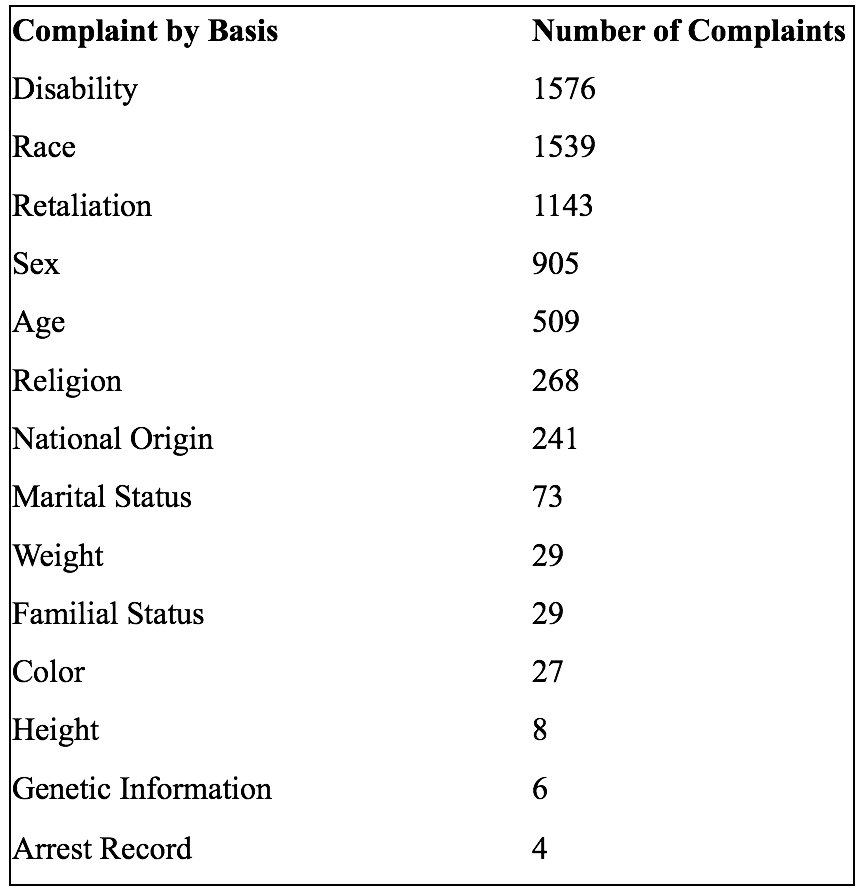TUESDAY, March 21 — Disabilities now account for the top type of discrimination complaints to the Department of Civil Rights.
“Disability has now outpaced race, in terms of those complaints that we received,” Executive Director John E. Johnson Jr. said. “Our goal in enforcement is to receive these complaints, investigate them and do that in a more efficient manner.”
Disability-related complaints represented the biggest share of 6,357 complaints received in the year ending Sept. 30, 2022. Disability accounted for 25% of the filings, followed by race (24%), retaliation (18%) and sex (14%), according to the department.
As a result, the department formed a Disability Rights and Compliance Division to look more broadly at discrimination against people with disabilities. The department’s primary function is enforcement of Michigan’s Elliott-Larsen Civil Rights Act and Persons with Disabilities Civil Rights Act.
Jenny Brown is the chief executive officer of Dutton Farm, a Rochester nonprofit that supports adults with disabilities. Its primary services include adult education, community access and workforce development, with 125 to 150 clients enrolled.
Brown said self-determination and autonomy are barriers for people with disabilities and said that it is common for them to live their lives with others making decisions for them.
“This is really like that last civil rights frontier that not a lot of people are talking about, and frustrating on our end, but we just keep doing the day in and day out work that’s necessary for the one in front of us at that time,” Brown said.
Disability Rights Michigan is the protection and advocacy agency for the state.
According to its executive director, Michelle Roberts, the organization has received “complaints about the lack of responsiveness, backlog, and length of time investigations take in the civil rights system.”
Roberts said her group is developing a strategy to best advocate for systemic change and more effective remedies for civil rights violations.
Johnson said compliance problems come when individuals feel they have been victims of discrimination and their needs were not accommodated, for example, by landlords.
The complaint statistics for 2021-22 were released prior to the expansion of the Elliott-Larsen Civil Rights Act, signed into law on March 16. It now includes discrimination based on sexual orientation and gender identity, giving the department authority to investigate such complaints.
According to the department’s director of special projects, Harold Core, representative examples of disability complaints may come from:
- someone with a vision impairment and a service dog who was denied seating at a restaurant;
- a nurse with asthma who was teased about wheezing on the job;
- an assembly line worker injured in an accident and now using a wheelchair whose employer refused a request to change job duties.
Johnson said, “We engage in a lot of training throughout the state,” citing the federal Americans with Disabilities Act coordinators at every state agency, as well as a monthly newsletter in which the coordinators discuss problems and bring concerns to the Civil Rights Department’s attention.
In 2021-22, the department closed 1,299 complaints and secured $566,126 in settlements. Among the complaints, 49.6% related to employment, 23.4% to public services and accommodation, 17.3% to housing, 5.4% to education and 4.3% to law enforcement
Brown, who founded Dutton Farm in 2010 after observing her sister Rebecca grow up with Down Syndrome, said unemployment for those with disabilities is around 75%, adding that part of addressing Americans with Disabilities Act enforcement is building a more inclusive culture.
Inclusion in housing, eliminating stereotypes and improving the workplace environment by hiring people with disabilities are such actions, Brown said.
Research shows companies with more inclusive practices outperform competitors, she said.
As for policy, Brown cited updating the federal Supplemental Security Income program, which provides monthly payments to those with a disability and low income. She said an overhaul of the program is needed and payments should rise so those with disabilities can afford basic necessities.
Another challenge is establishing more accessible transportation without gaps in service routes so riders with disabilities can get to appointments and jobs, she said.
Johnson said the department will continue focusing on improving enforcement, preventing discrimination through training and using units that combine law enforcement agencies and civil rights organizations.
The department traditionally receives less than $15 million in annual funding, and Johnson said Gov. Gretchen Whitmer has recommended at least $12 million more.












Comments
No comments on this item Please log in to comment by clicking here